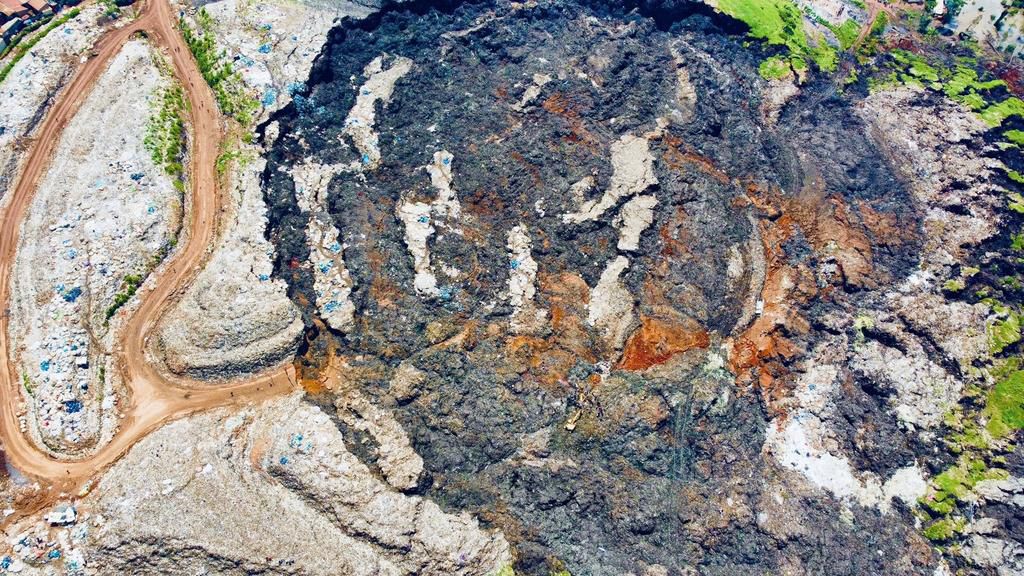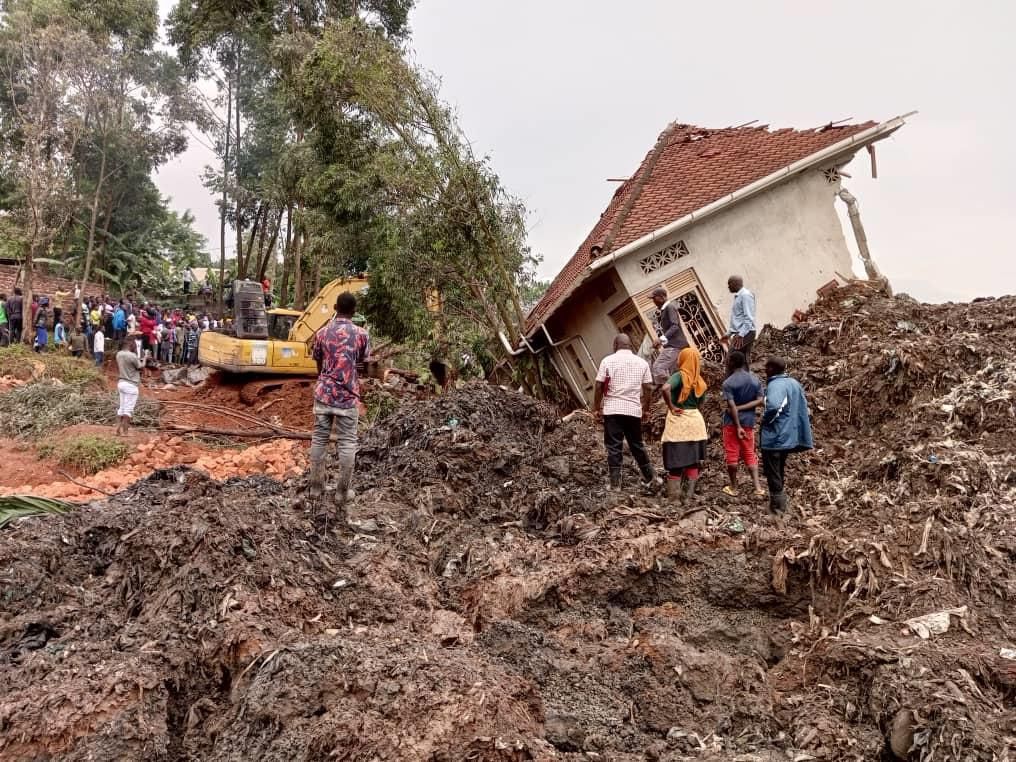Museveni orders eviction, compensation of families around Kiteezi landfill
)
The incident, which took place on Saturday, prompted an urgent search and rescue operation that continued late into the night. Rescue teams, including the Uganda Police, the Uganda Red Cross, and local residents, worked tirelessly to retrieve bodies and rescue those trapped under the debris. As of the latest reports, 12 bodies had been recovered, and several others were found injured. Efforts are ongoing to rescue any remaining survivors.

In a statement released today, President Museveni expressed his condolences to the families of the victims and addressed the broader issues surrounding the disaster. "This is to convey condolences to the families of the People who died yesterday as a consequence of part of the rubbish heap at Kiteezi (orubuungo), peeling off (kubeguka) and burying People who were living nearby," the President said.
President Museveni questioned how such a situation was allowed to occur in the first place, highlighting the dangers associated with living near a landfill.
"Who allowed People to live near such a potentially hazardous and dangerous heap?" he asked, noting that even without the collapse, the effluent from the landfill posed a significant health risk to those nearby. He drew parallels to traditional refuse heaps, which, despite being organic, were still considered hazardous.

The President emphasized that no settlements should have been permitted near the landfill due to the risks posed by both the effluent and the potential for landslides.
He referenced a conversation with Dorothy Kisakka, the KCCA Executive Director who had informed him of previous efforts to relocate the landfill to Dundu, a move that was ultimately blocked by local residents.
Instead, authorities had been exploring ways to positively utilize the landfill's waste, such as generating electricity and producing manure. However, Museveni stressed that these efforts did not justify the decision to allow human settlement so close to the landfill.
In response to the disaster, President Museveni has ordered an investigation into the matter, tasking the Deputy Inspector General of Government (IGG), Anne Muhairwe, with leading the inquiry.
Evacuation
The President expects a swift report on the circumstances that led to the tragedy. In the meantime, he has directed Prime Minister Robinah Nabbanja to oversee the evacuation of all households within the danger zone and to ensure that recovery efforts for those still buried continue without delay.
The President also took the opportunity to remind Ugandans of the dangers of living in hazardous areas, such as wetlands, lake shores, riverbanks, and forests. He urged citizens to avoid such locations, where the risk of disasters like landslides, floods, and disease outbreaks is heightened. "All should know that People—technical or political—who encourage them to do so are, actually, their enemies," he warned.
To assist in the ongoing rescue and recovery efforts, President Museveni has directed the UPDF Special Forces to lend their support. He has also instructed the State House Comptroller to provide financial assistance to the families of the victims, offering Sh5 million per deceased person and Sh1 million per injured person. The President clarified that this financial aid is separate from any legal compensation that may be forthcoming if a government agency is found responsible for the disaster.


)
)
)
)
)